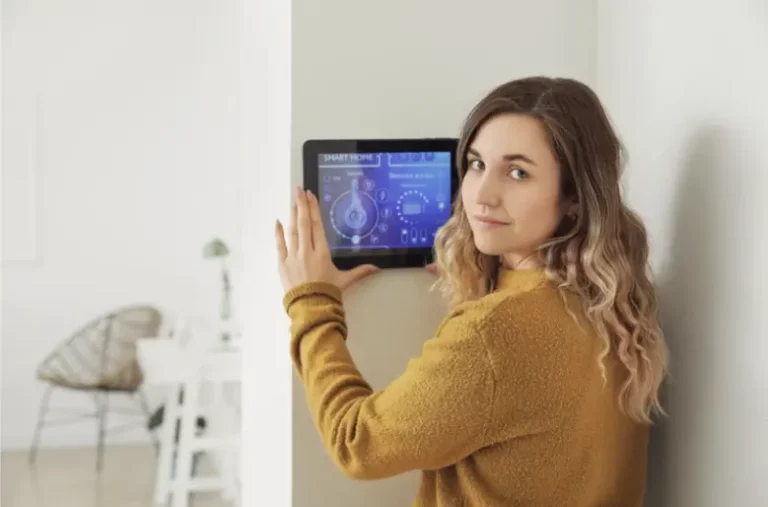“Security is a constant process, not a product you purchase and forget about.”
Bruce Schneier
The integration of Artificial Intelligence (AI) into home security systems has significantly advanced their capabilities, providing homeowners with enhanced protection against a wide range of threats. While these systems have traditionally focused on preventing physical intrusions, the increasing interconnectivity of smart home devices has introduced new challenges related to unauthorized access and personal privacy. This article delves into how AI is being leveraged to address these challenges, supported by comprehensive factual data, real-world applications, and an analysis of the broader implications for homeowners and businesses.
The Challenge of Unauthorized Access in Home Security

Unauthorized access to home security systems and smart devices poses a significant risk to personal privacy and safety. As homes become smarter and more connected, they also become more vulnerable to cyber threats. According to a report by Symantec, the number of attacks on Internet of Things (IoT) devices increased by 600% in 2019, highlighting the growing threat to smart home systems. This surge in cyber attacks underscores the need for robust security measures to protect against unauthorized access.
Traditional security systems, which rely on passwords and basic encryption, are often insufficient to protect against sophisticated cyber threats. Hackers can exploit vulnerabilities in these systems to gain access to sensitive information, such as video footage from security cameras or personal data stored on smart devices. Once inside the network, they can manipulate devices, disable alarms, and compromise the overall security of the home.
AI has emerged as a powerful tool in combating unauthorized access by enhancing the security of home networks and devices. One of the key advantages of AI is its ability to continuously monitor network traffic and detect unusual activities that may indicate a cyber threat. By analyzing patterns and behaviors, AI systems can identify anomalies that could signify an attempt to breach the system. For instance, if an AI system detects an unusual login attempt from an unfamiliar location, it can automatically block the attempt and alert the homeowner.
In addition to monitoring network traffic, AI can enhance the security of authentication processes. Traditional authentication methods, such as passwords, are often vulnerable to hacking and phishing attacks. AI can introduce more secure authentication methods, such as biometric verification and multi-factor authentication (MFA). Biometric verification, which uses unique physical characteristics like fingerprints or facial features, provides a higher level of security than traditional passwords. MFA adds an extra layer of protection by requiring multiple forms of verification before granting access to the system.

AI-driven facial recognition technology can further enhance security by ensuring that only authorized individuals can access the home. For example, AI-powered cameras can scan faces at entry points and compare them to a database of approved individuals. If an unrecognized face is detected, the system can trigger an alert and deny access. This technology not only prevents unauthorized entry but also provides a real-time record of who is entering and leaving the home, enhancing overall security.
The integration of AI with other smart home devices also plays a crucial role in preventing unauthorized access. AI can coordinate with smart locks, lights, and alarms to create a comprehensive security system that responds dynamically to potential threats. For instance, if a security camera detects suspicious activity, AI can automatically lock doors, turn on lights, and activate alarms to deter intruders. This seamless integration ensures that the entire home is protected and that security measures are activated promptly in response to any threat.
Real-World Applications and Benefits
The practical application of AI in preventing unauthorized access is evident in various innovative home security products. Companies like Nest and Ring have developed AI-powered security systems that use advanced facial recognition and behavioral analysis to monitor activities and ensure that only authorized individuals can access the home. These systems have proven effective in reducing unauthorized access incidents and enhancing overall security.
For instance, the Nest Hello video doorbell uses AI-powered facial recognition to identify visitors at the door. It can distinguish between familiar faces and strangers, sending alerts to homeowners if an unknown person is detected. This technology not only prevents unauthorized access but also provides a convenient way for homeowners to manage their visitors and deliveries.
AI’s ability to analyze and learn from data also allows it to adapt to changing security needs. As AI systems process more data and learn from new incidents, they become more accurate and effective in detecting and preventing unauthorized access. This continuous learning capability ensures that AI-driven security systems remain up-to-date and capable of responding to emerging threats.
Addressing Data Privacy Concerns

While AI offers significant benefits in preventing unauthorized access, it also raises important data privacy concerns. The vast amounts of data collected by AI systems, including video footage and biometric information, must be protected to prevent misuse and ensure the privacy of homeowners. According to a survey by the Pew Research Center, 79% of Americans are concerned about how their data is being used by companies, highlighting the importance of robust data privacy measures.
One of the primary concerns is the potential for unauthorized access to the data itself. Hackers can target the data stored by AI systems, gaining access to sensitive information that can be used for malicious purposes. To mitigate this risk, AI-driven security systems must employ strong encryption methods to protect data at rest and in transit. Encryption ensures that even if data is intercepted, it cannot be read without the decryption key.
Another important measure is ensuring transparency and user control over data. Homeowners should have clear visibility into how their data is being collected, stored, and used. Providing users with the ability to control their data, such as opting out of certain data collection practices or deleting stored information, empowers them to protect their privacy. The General Data Protection Regulation (GDPR) in Europe sets a benchmark for data protection, emphasizing the rights of individuals to access and control their personal data.
AI systems should also adhere to strict data minimization principles, collecting only the data necessary for their operation and retaining it for the minimum amount of time required. This approach reduces the risk of data breaches and ensures that personal information is not stored unnecessarily.
Challenges and Considerations

Despite the significant benefits, there are several challenges and considerations in implementing AI to prevent unauthorized access and protect data privacy. One of the primary challenges is the complexity and cost of AI systems. High-quality AI security systems can be expensive, limiting their accessibility to higher-income households. Additionally, the complexity of these systems can be a barrier for some homeowners, who may find it challenging to set up and manage them effectively.
Another challenge is the potential for AI systems to generate false positives, where legitimate access attempts are incorrectly identified as threats. While AI systems are designed to minimize false positives, they are not infallible. Ensuring that AI algorithms are accurate and reliable is crucial to maintaining the trust of homeowners.
The reliance on AI for home security also raises ethical considerations. The use of facial recognition technology, for example, has been the subject of debate due to concerns about surveillance and privacy. Ensuring that AI systems are used responsibly and in compliance with ethical standards is essential to maintaining public trust.
Conclusion
AI-enhanced home security systems represent a significant advancement in protecting homes from unauthorized access and ensuring personal privacy. By leveraging advanced technologies such as network monitoring, biometric verification, facial recognition, and smart device integration, AI can provide a comprehensive and reliable security solution. These systems not only enhance physical security but also address the growing threat of cyber attacks, providing homeowners with peace of mind.
As technology continues to evolve, investing in AI-driven home security systems will become increasingly important for ensuring comprehensive safety. Addressing challenges such as data privacy, system complexity, and cost will be crucial to fully realizing the potential of AI in home security. Ultimately, AI represents a transformative force in the realm of home security, offering innovative solutions that enhance safety, reliability, and privacy, and providing a more secure future for all homeowners.


